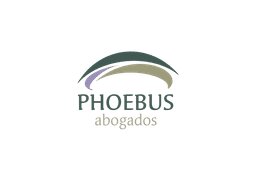Best Tax Lawyers in Rosario
Share your needs with us, get contacted by law firms.
Free. Takes 2 min.
List of the best lawyers in Rosario, Argentina
About Tax Law in Rosario, Argentina
Tax law in Rosario, Argentina, is governed by both provincial and federal regulations. The city, being a major urban center, follows the tax schedules dictated by the Santa Fe province, as well as those set out by the national government. Taxes in Argentina generally include income tax, VAT (Value Added Tax), and property tax, among others. Businesses and individuals are required to comply with tax obligations, with Rosario being subject to inspections and audits by the Federal Administration of Public Revenues (AFIP) and provincial tax authorities.
Why You May Need a Lawyer
There are numerous scenarios where individuals and businesses might seek the expertise of a tax lawyer in Rosario:
- Complex transactions or cross-border dealings requiring sophisticated tax planning to minimize liabilities.
- Disputes with the AFIP or local tax agencies over assessments, audits, or enforcement actions.
- Help with understanding the implications of new tax laws and regulations or changes to existing ones.
- Advice and representation in cases of alleged tax evasion or other potential violations.
- Guidance on tax incentives for businesses, such as those relating to exports or specific industries.
Local Laws Overview
Taxation in Rosario involves a combination of national, provincial, and municipal laws:
- Federal taxes typically include income tax, VAT, and social security contributions.
- The Income Tax Law governs the taxation of all income earned by residents and non-residents from Argentine sources.
- The Gross Income Tax is a provincial tax and is particularly relevant for businesses operating in Santa Fe.
- Property tax is levied at the provincial level, while the municipal tax is applicable to real estate located within Rosario.
- Periodic regulatory changes require businesses and individuals to stay informed and compliant to avoid penalties.
Frequently Asked Questions
What is the deadline for filing income tax returns in Argentina?
Income tax filings typically have deadlines set by AFIP in April and May for individual taxpayers. Businesses may have different timelines depending on their fiscal year-end.
Do foreign nationals living in Rosario have to pay taxes?
Foreign nationals living in Argentina are subject to income tax on their Argentine-sourced income and possibly on global income, depending on the length of their residence.
What are the penalties for late tax payments?
Late tax payments may incur fines, interest charges, and possible legal consequences enforced by the AFIP or local tax authorities.
How is property tax calculated in Rosario?
Property tax depends on the assessed value of the real estate and is determined by provincial and local regulations. The assessment often considers the location and size of the property.
Are there tax incentives for businesses in Rosario?
Yes, certain sectors may benefit from incentives such as tax credits or exemptions, especially if involved in exports, technology, or renewable energies.
How do businesses manage VAT obligations?
Businesses must register for VAT, collect it from customers, submit regular filings to the AFIP, and remit the tax collected.
Is tax advice deductible as a business expense?
Yes, fees paid for tax planning and compliance services can generally be deducted as business expenses.
What should I do if I receive an audit notice?
It's advisable to consult with a tax lawyer immediately to understand the scope of the audit and prepare a thorough response.
Can I resolve tax disputes out of court?
Many tax disputes can be resolved through administrative processes or settlement negotiations before proceeding to court.
How does inflation affect taxes in Argentina?
The government may adjust tax brackets and rates in response to inflation, which can impact both direct and indirect tax liabilities.
Additional Resources
For more information and assistance, consider reaching out to:
- Federal Administration of Public Revenue (AFIP) for national tax matters and resources.
- The Santa Fe Provincial Revenue Department for provincial taxes.
- Professional organizations such as the Rosario Bar Association for legal representation.
- Local chambers of commerce for information on business-related taxes and incentives.
Next Steps
If you need legal assistance in tax matters, consider the following steps:
- Contact a specialized tax lawyer to discuss your specific needs and circumstances.
- Gather all relevant financial documents, such as tax returns, notices from tax authorities, and financial statements.
- Stay informed on tax law developments through reputable news sources and professional advisories.
- Consider joining local business groups or workshops to stay updated on practical tax management strategies.
Lawzana helps you find the best lawyers and law firms in Rosario through a curated and pre-screened list of qualified legal professionals. Our platform offers rankings and detailed profiles of attorneys and law firms, allowing you to compare based on practice areas, including Tax, experience, and client feedback.
Each profile includes a description of the firm's areas of practice, client reviews, team members and partners, year of establishment, spoken languages, office locations, contact information, social media presence, and any published articles or resources. Most firms on our platform speak English and are experienced in both local and international legal matters.
Get a quote from top-rated law firms in Rosario, Argentina — quickly, securely, and without unnecessary hassle.
Disclaimer:
The information provided on this page is for general informational purposes only and does not constitute legal advice. While we strive to ensure the accuracy and relevance of the content, legal information may change over time, and interpretations of the law can vary. You should always consult with a qualified legal professional for advice specific to your situation.
We disclaim all liability for actions taken or not taken based on the content of this page. If you believe any information is incorrect or outdated, please contact us, and we will review and update it where appropriate.








